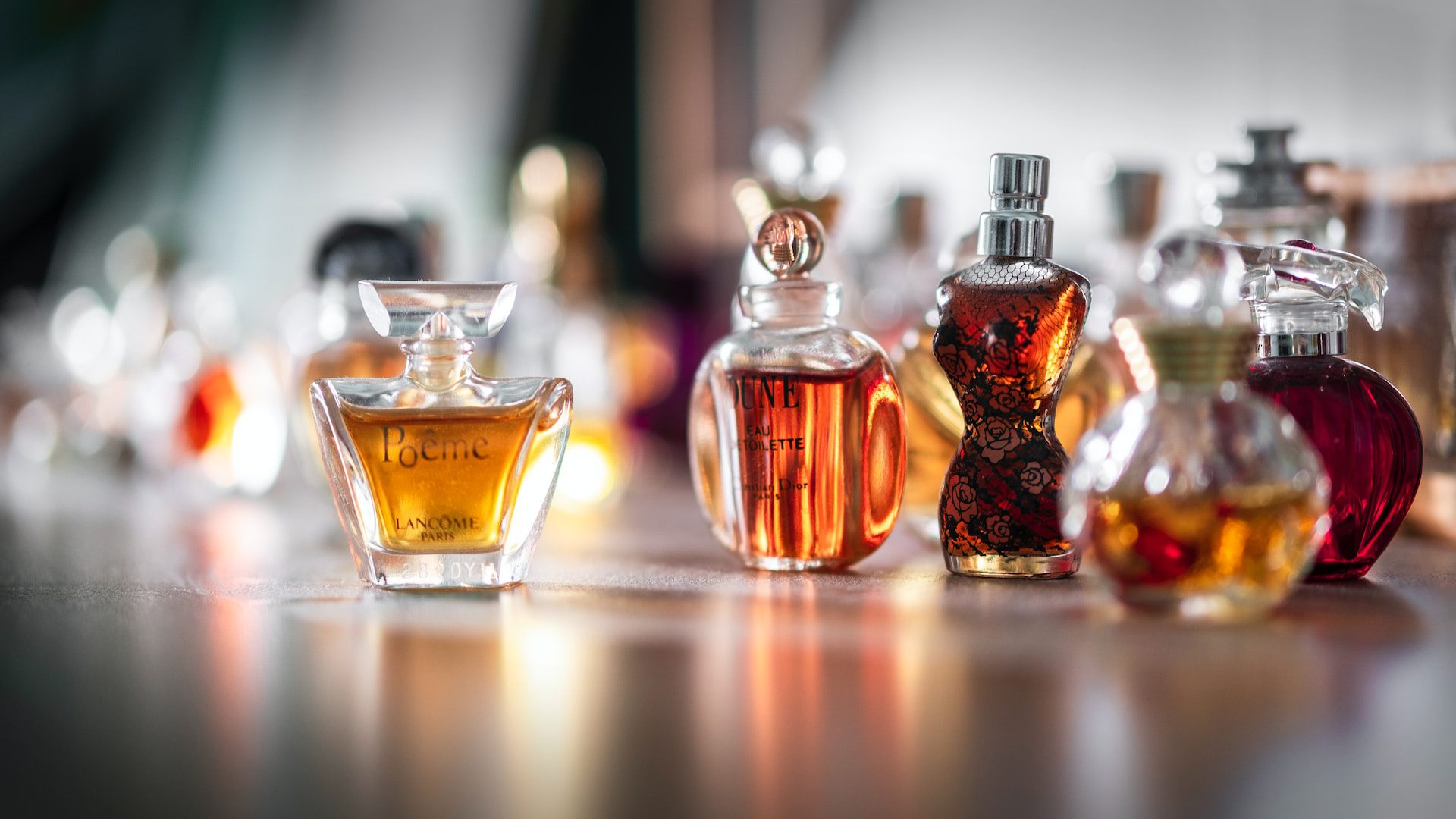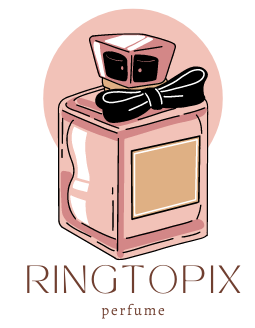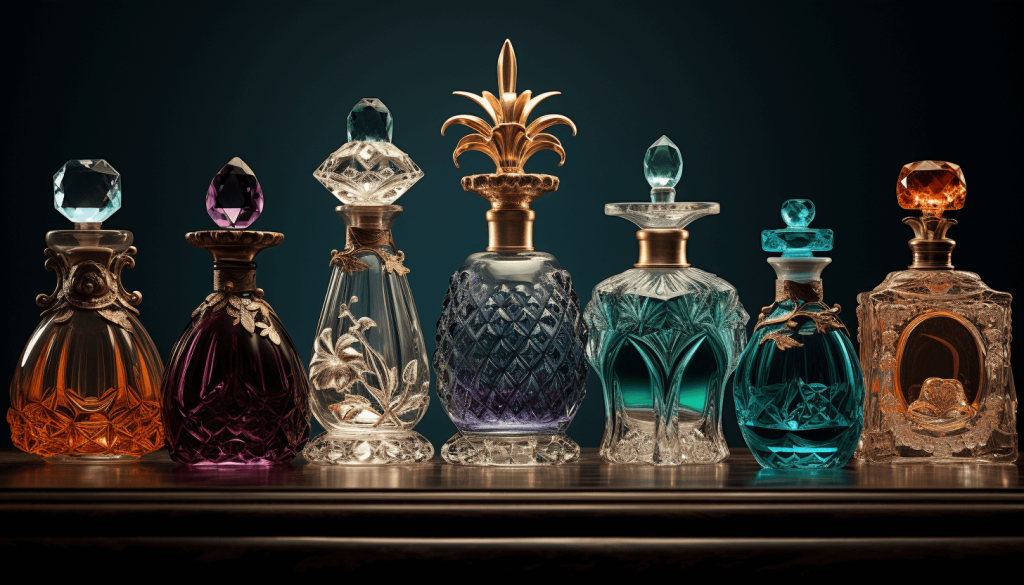Blog
The History of Perfume – From Ancient Times to Today
The history of perfume is a fascinating journey that spans thousands of years, transcending civilizations, cultures, and continents. Perfume has been an integral part of human society, from religious rituals to personal expression. This journey through the ages reveals how the art of scent has evolved from simple fragrances to the complex, high-end creations we enjoy today.
1. Ancient Beginnings – Egypt and Mesopotamia
Perfume’s story begins as early as 3000 BCE in ancient civilizations like Egypt and Mesopotamia. The Egyptians were among the first to develop and use perfumes, which played a significant role in their religious ceremonies, social rituals, and daily life. They believed that fragrances were divine gifts and often associated them with their gods and goddesses. The famous Egyptian queen Cleopatra is said to have used a mix of rose and jasmine oils to create her signature scent, anointing herself in these luxurious fragrances before meeting with important figures.
In Mesopotamia, perfume was similarly revered. The first known perfume recipes were recorded on clay tablets, detailing the blending of various oils and resins. The use of essential oils like myrrh, frankincense, and cedar was common in religious and ritualistic contexts.
2. The Rise of Perfume in Ancient Greece and Rome
In ancient Greece, perfume was not only an indulgence but also a symbol of social status. The Greeks used fragrances in religious ceremonies, during their baths, and as part of their personal grooming routines. They created perfumes using essential oils mixed with olive oil and beeswax, which were used to anoint the body. The Greeks are credited with naming the practice of perfumery, which comes from the Latin word per fumum, meaning “through smoke.”
The Romans adopted and expanded upon Greek perfumery, elevating it to a luxurious art form. They introduced the concept of using scents in public spaces and developed complex fragrances that were often infused with spices, herbs, and flowers. Roman baths, adorned with aromatic oils and flowers, were renowned for their relaxing and revitalizing qualities. The wealthy Romans even used perfume as a way to showcase their status, with rare and exotic scents being highly prized.
3. The Middle Ages – Perfume in Islamic Culture

The Middle Ages marked a significant chapter for the history of perfume, particularly with the rise of the Islamic Golden Age. During this period, the art of perfumery flourished, thanks to advancements in chemistry and alchemy. The Islamic world contributed to the development of modern distillation techniques, which allowed for the creation of pure essential oils. The famous Persian polymath Avicenna (Ibn Sina) is often credited with inventing the distillation process that produced rose water.
Perfume in Islamic culture was associated with cleanliness and was used in religious practices, such as during prayer and before entering a mosque. It was also a symbol of hospitality and wealth, with nobles and scholars using fragrant oils and scents as part of their personal care and daily life.
4. The Renaissance – Perfume as Art and Luxury
During the Renaissance, European perfumery experienced a revival as trade routes expanded, introducing exotic ingredients from the East and the New World. Perfumes were not just a luxury for the elite; they became popular among the aristocracy and even among the middle class. The period saw the emergence of scent as an essential part of fashion and courtly life. The famous Italian city of Florence became a hub for the development of exquisite fragrances, where perfumers blended rare ingredients such as amber, musk, and civet.
The art of perfumery continued to evolve, with the introduction of new techniques and the invention of colognes. The 16th century was marked by the creation of the first modern eau de cologne in 1709 by Giovanni Maria Farina in Germany. This fragrance, known as Eau de Cologne, was light, refreshing, and became immensely popular, influencing future perfume trends.
5. The Age of Modern Perfumery – 19th and 20th Centuries

The 19th century was a transformative period for perfumery, driven by the discovery of synthetic aromatic compounds. This innovation allowed perfumers to create fragrances that were previously impossible to achieve with natural ingredients alone. The use of synthetic compounds such as vanillin, coumarin, and aldehydes broadened the palette of fragrances and led to the creation of iconic perfumes that are still popular today.
One of the most famous perfumes of this era was Chanel No. 5, created by Coco Chanel and perfumer Ernest Beaux in 1921. This perfume was groundbreaking for its use of aldehydes, which gave it a complex and abstract scent that defied traditional floral perfumes. Chanel No. 5 set the standard for modern perfumery and revolutionized the industry with its innovative approach.
The 20th century also saw the emergence of other iconic fragrances, such as Joy by Jean Patou, known for being the most expensive perfume of its time, and Shalimar by Guerlain, which became a classic and still remains beloved for its rich, amber base.
6. The Modern Era – Perfumes Today
Today, the world of perfume has expanded dramatically, offering a vast array of choices that cater to every taste, style, and budget. The industry has shifted toward niche and artisan perfumes, focusing on unique compositions and storytelling. Brands like Le Labo, Diptyque, and Serge Lutens continue to push the boundaries of fragrance, exploring new ingredients and creative blends.
Perfume is no longer reserved for the elite; it has become an accessible luxury that reflects personal identity. With advancements in technology and a globalized market, perfume enthusiasts now have access to a diverse range of products from every corner of the world. From sustainable, cruelty-free options to high-end designer creations, the industry continues to evolve while staying deeply rooted in its historical origins.
Conclusion
The history of perfume is a testament to its enduring appeal and significance in human culture. From ancient rituals and religious practices to modern-day fashion statements, perfume has remained an essential part of human expression. As we look to the future, the art of perfumery will continue to evolve, blending tradition with innovation and ensuring that the legacy of scent remains a powerful force in our lives.

